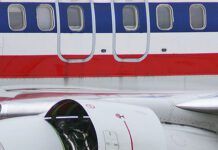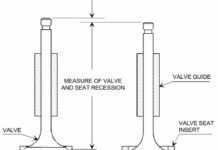 Aviation would contribute less to global warming if aircraft burned more fuel. Thats the convoluted conclusion reached by researchers at Britains Imperial College. Theyve determined that if airliners consistently flew at lower altitudes, the resulting decrease in the creation of contrails would more than offset the effect on global warming of the increase in fuel burn. It seems counterintuitive, acknowledged Robert Noland, one of the studys authors, in a report in the Nigerian Tribune. However, the contrail issue could become more prominent with the expectation that airline travel will grow 3.5 percent annually for the foreseeable future and that much of that growth is expected in the contrail-spewing long-haul market. Noland and his team based their study on a theoretical shift in air traffic from the mid-30 flight levels to between 24,000 and 31,000 feet, where contrails are much less prevalent. They calculated that lower-flying aircraft would burn 4 percent more fuel (and create 4 percent more greenhouse gases) but that the elimination of contrails would have a greater net impact on the retention of heat in the atmosphere.
Aviation would contribute less to global warming if aircraft burned more fuel. Thats the convoluted conclusion reached by researchers at Britains Imperial College. Theyve determined that if airliners consistently flew at lower altitudes, the resulting decrease in the creation of contrails would more than offset the effect on global warming of the increase in fuel burn. It seems counterintuitive, acknowledged Robert Noland, one of the studys authors, in a report in the Nigerian Tribune. However, the contrail issue could become more prominent with the expectation that airline travel will grow 3.5 percent annually for the foreseeable future and that much of that growth is expected in the contrail-spewing long-haul market. Noland and his team based their study on a theoretical shift in air traffic from the mid-30 flight levels to between 24,000 and 31,000 feet, where contrails are much less prevalent. They calculated that lower-flying aircraft would burn 4 percent more fuel (and create 4 percent more greenhouse gases) but that the elimination of contrails would have a greater net impact on the retention of heat in the atmosphere.


































